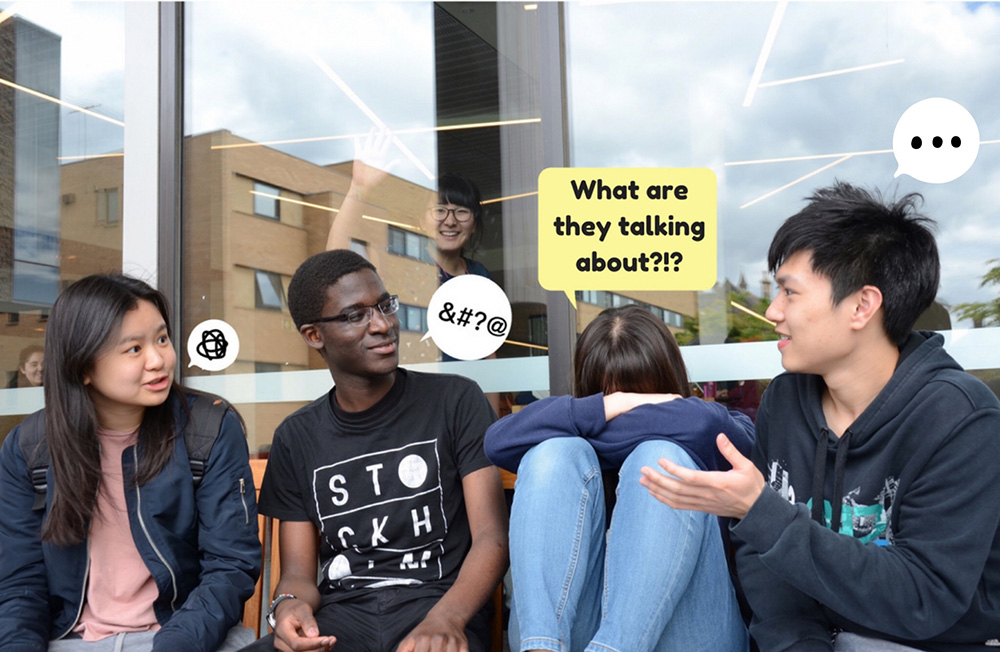4 challenges you’ll face when making friends in a new country
When you’re living abroad away from friends and family, it might be a challenge to get settled and feel completely at home. And without having your family members around, having friends you can talk to would be really helpful especially if you’re always feeling homesick. However, some international students find it harder than others to make friends. We identify a few reasons why that might be which most students may relate to.
Entering adulthood
Undertaking overseas study and living abroad for the first time is the first step into adulthood for many young international students. And part of being an adult is to be independent – to try and solve certain problems on your own instead of seeking help from others. The sense of maturity, coupled with newfound independence can make it difficult for students to reach out for help.
Cultural and language differences
International students tend to click more with people from the same country at first because of the same culture and language spoken. But when they mesh with other students both local to Australia and from other parts of the world, cultural and language barriers often make it difficult to find something common to bond over.
Different and busy schedule
During orientation week, you might have made a couple of new friends at the start but as classes start, things may begin to change. Different courses and schedules will inevitably make it harder to catch up. You might not even see them again after orientation. This problem isn’t just exclusive to international students and can even happen to locals as well so you may have to get used to the idea of having to look for other friends you can hang out with.
Dating
If you do find yourself dating someone else while you’re studying abroad, you might think this is actually a great thing. You’ll always have someone to keep you company and do things with. But as you spend more time with your partner, you may not feel the need to socialise with new people. A partner is important but so is surrounding yourself with additional company.

A burgeoning sense of maturity and independence can affect our relationship with others. | Photo: Kelly Lam
Solutions: How you can make it easier to connect with others
It’s not all doom and gloom however. International students have every chance to make friends and meet new people during their studies as everyone else. We spoke to Trinity College’s student counsellor, Anita Krautschneider, who offered her own advice for international students on how they can simply make friends.
1. Find friends who have the same interest with you. Joining school clubs are always the best opportunity to make new friends and build connections. Clubs always have regular meetings and gatherings. So, you can spend time with your like-minded friends.
2. Struggling in finding topics? Share your experience and story with your friends. Because they will respond and talk about their experience as well. It is a great opportunity to make a strong bond because it can build a deeper conversation between you and your mates. Also, sharing experience is better than asking boring questions such as “What class do you have?”
3. Ask your friends to have lunch or dinner together. It is a very good chance for meeting friends because nobody will say NO to food!
4. Volunteer in events. You can always meet people from different schools. It creates wondering memories and it is always meaningful.
5. Don’t stick with your partner all the time, give yourself some time to spend it with your friends. They are also the one who support and understand you. Be more aware of the relationship with your friends. Once you break up, you will not have friends you can rely on.
6. Don’t need to worry! It always takes times to make friends, especially close friendship.
If you’re ever struggling with homesickness or you feel lonely in an unfamiliar environment, hang in there. It gets easier. If you need professional help, seek guidance from your university counsellor.
This story was produced by Media and Communication students at Trinity College Foundation Studies as part of Meld’s community newsroom collaboration. Education institutions, student clubs/societies and community groups interested in being involved can get in touch with us via meld@meldmagazine.com.au.
